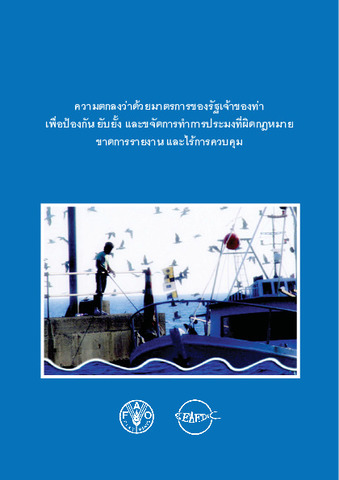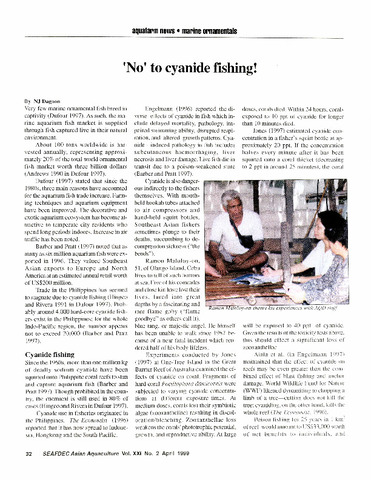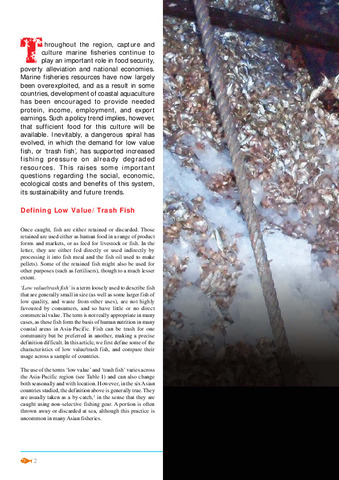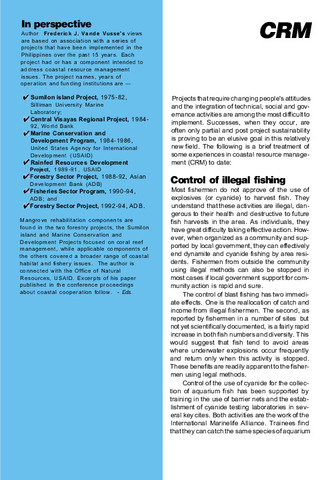ความตกลงว่าด้วยมาตรการของรัฐเจ้าของท่า เพื่อป้องกัน ยับยั้ง และขจัดการทำการประมงที่ผิดกฎหมาย ขาดการรายงาน และไร้การควบคุม [Agreement on port state measures to prevent, deter and eliminate illegal, unreported and unregulated fishing]
Share
Abstract
The Agreement on Port State Measures to Prevent, Deter and Eliminate Illegal, Unreported and Unregulated Fishing seeks to prevent, deter and eliminate illegal, unreported and unregulated fishing through the adoption and implementation of effective port State measures as a means of ensuring the long-term conservation and sustainable use of living marine resources. The intention is that the Agreement will be applied widely and effectively by Parties, in their capacities as port States, for vessels not entitled to fly their flags. It will apply to these vessels when seeking entry to Parties’ ports or while they are in port. Certain artisanal fishing and container vessels will be exempt. The Agreement gives special emphasis to the requirements of developing countries to support their efforts to implement the Agreement.
Paglalarawan
A Translation of FAO Publication “Agreement on Port State Measures to Prevent, Deter and Eliminate Illegal, Unreported and Unregulated Fishing.” in Thai
Paksa
Mga koleksyon
Related items
Showing items related by title, author, creator and subject.
-
'No' to cyanide fishing!
Dagoon, N. J. (Aquaculture Department, Southeast Asian Fisheries Development Center, 1999) -
Prized commodity: Low value/trash fish from marine fisheries in the Asia-pacific region
Staples, Derek; Funge-Smith, Simon (Secretariat, Southeast Asian Fisheries Development Center, 2005)The use of the terms 'low value' and 'trash fish' varies across the Asia-Pacific region and can also change both seasonally and with location. This article defines low value/trash fish as 'Fish that have a low commercial ... -
CRM in the Philippines: Lessons learned
Southeast Asian Fisheries Development Center, Aquaculture Department (Aquaculture Department, Southeast Asian Fisheries Development Center, 1996)Philippine coastal communities can become capable fishery resource managers and that their management practices can become largely self-sustaining if the project approach focuses on assisting fishermen to learn how to help ...





